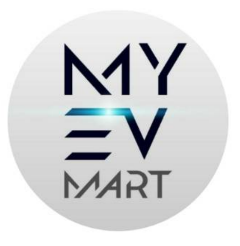As electric vehicles (EVs) gain popularity, the need for a home car charging point becomes essential for EV owners. Understanding what an electric car home charging point entails and why it is beneficial can streamline your EV ownership experience.
What is an EV Charging Point for a Home?
An EV charging point for home is a dedicated station where electric vehicles can be conveniently charged. It typically includes a charging unit (EVSE – Electric Vehicle Supply Equipment) and is connected to your home’s electrical system. This setup allows EV owners to charge their vehicles overnight or whenever convenient, ensuring they are always ready to go.
Why Would an EV Owner Need One?
- Convenience: Having a home car charging point eliminates the need to visit public charging stations frequently. You can conveniently charge your EV overnight while you sleep, ensuring a full battery each morning.
- Cost Savings: Charging at home is generally more cost-effective than using public charging stations. This is because residential electricity tariffs are lower compared to commercial rates. Over time, these savings add up, making EV ownership more economical.
- Time Efficiency: With a home car charging point, you save time that would otherwise be spent traveling to and waiting at public charging stations. The convenience of charging at home fits seamlessly into your daily routine.
- Availability: During peak times, public charging stations may be occupied, leading to delays. Having an electric car home charging point guarantees access to a charging spot whenever needed, without dependence on external factors.
Types of EV Charging Points for Home
There are different types of EV charging points for home to cater to various needs:
- Level 1 Charger: Uses a standard 120-volt outlet (in Malaysia typically 240V AC) and is the most basic option. It is slow but convenient for overnight charging. Installation costs are minimal, making it a budget-friendly choice.
- Level 2 Charger: Requires a 240-volt outlet and charges faster than Level 1 chargers. It is suitable for home use and allows for quicker charging times, ideal for those needing a faster turnaround.
- Smart Chargers: These chargers come with additional features such as Wi-Fi connectivity and smartphone apps. They enable the scheduling of charging sessions and monitoring of energy usage. They may even integrate with renewable energy sources.
Installation and Considerations
Installing an electric car home charging point involves considerations such as:
- Location: Choose a location close to where your vehicle will be parked, ideally with access to an electrical outlet.
- Electrical Capacity: Ensure your home’s electrical system can support the charger’s requirements. Professional installation may be necessary to upgrade wiring or install a dedicated circuit.
- Regulations: Check local regulations and permits required for installing EV chargers at home. Some areas may have specific requirements for electrical installations.
Conclusion
Investing in an EV charging point for home enhances the convenience, cost-effectiveness, and overall experience of owning an electric vehicle. Whether opting for a Level 1 charger for basic needs or a Level 2 charger for faster charging, the choice depends on your daily usage and preferences. As Malaysia continues to embrace electric mobility, having a home car charging point ensures you are prepared for the future of transportation.
To explore your options for installing an EV charging point at home or to learn more about the benefits, contact us at MyEV Mart. Let us help you make the transition to electric mobility smoother and more efficient as soon as possible!

